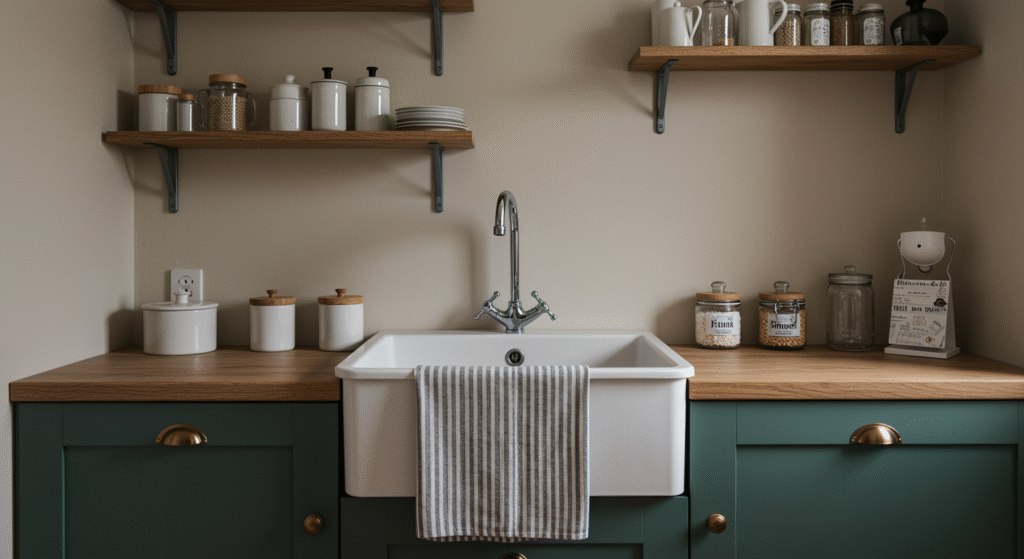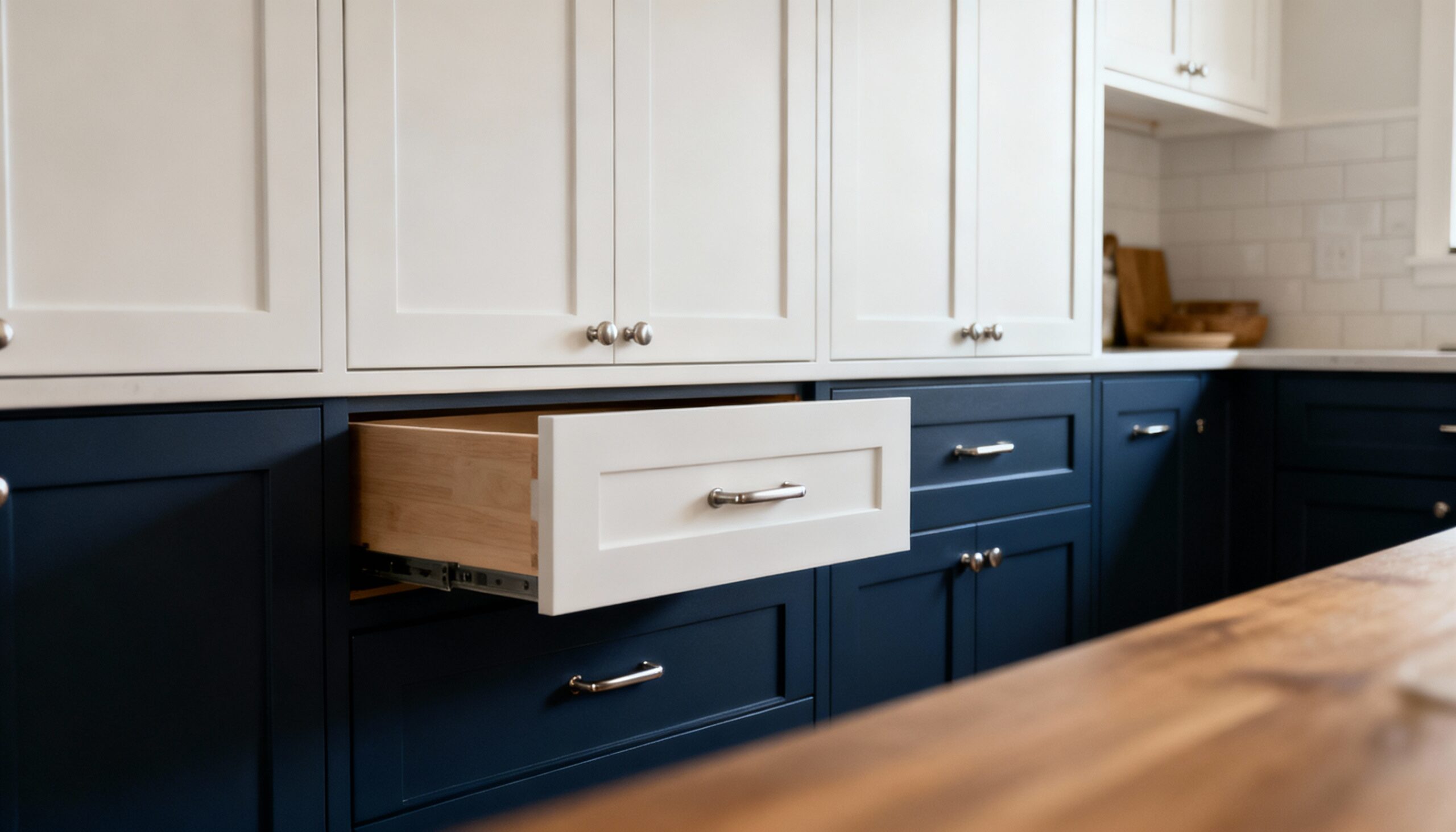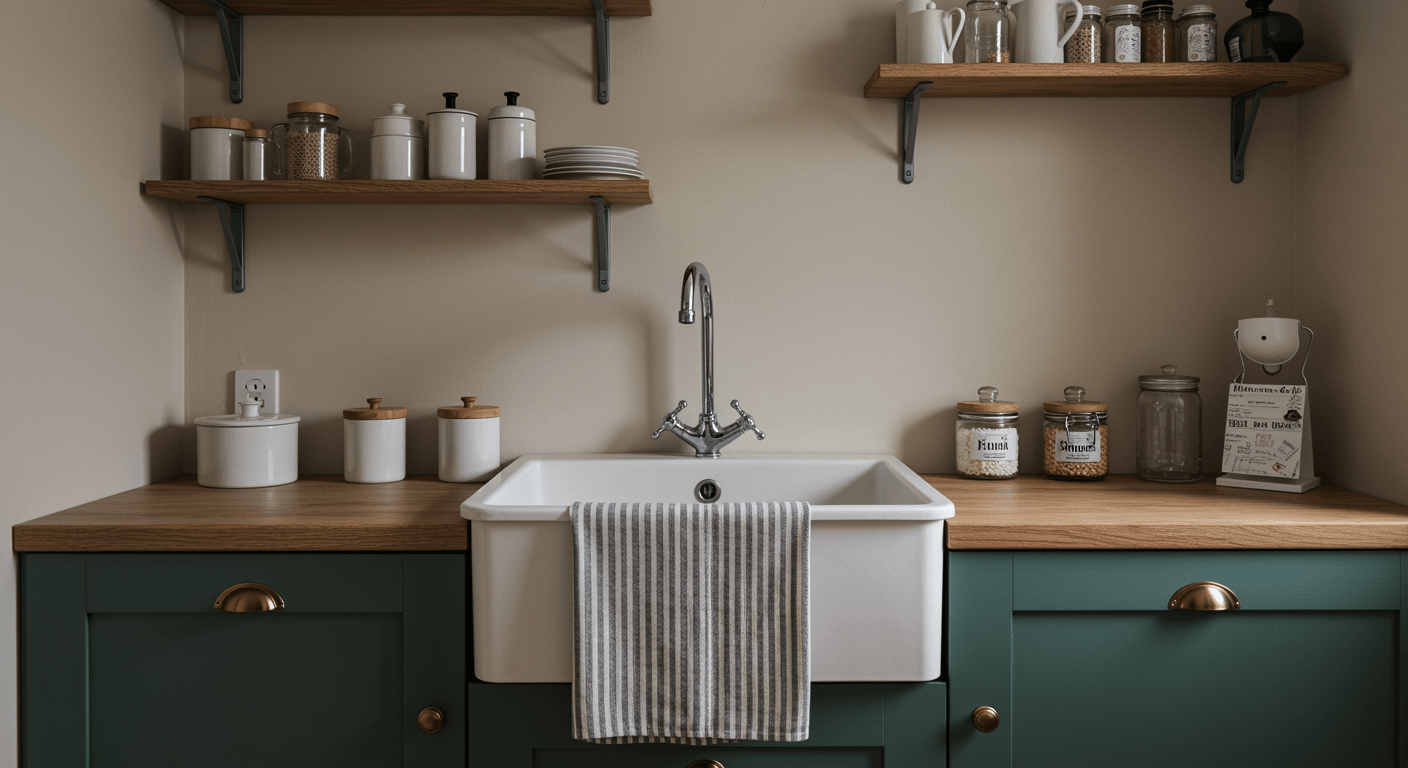Kitchen designer dilemma happens when aesthetics and practicality pull in opposing directions, forcing consumers to pick between beauty and everyday convenience. Hitting the right balance calls on knowing how appliances, layout, and materials will function outside of their show appeal. In the end, the best designs are those that support actual culinary practices beautifully and attractively.
Kitchen Designer Dilemma 1: Minimalist Aesthetics vs Everyday Function
One of the most often encountered problems a kitchen designer runs across is locating the ideal balance between fundamental design and everyday use. Celebrating minimalist style's clean lines, perfect cabinets, and uncluttered counters, the minimalist kitchen is the kind of design that seems great in pictures and instantly raises the modern attitude of a home.
Actual cooking techniques, however, seldom match the perfection seen in a showroom. For homeowners, accessible storage, quick-to-reach tools, and surfaces able to withstand daily wear are still necessary. The difficulty arises when the desire for a sleek, handle-free appearance conflicts with usability, with finger-pull doors that are difficult to grab or covered appliances becoming challenging to reach.
Designers must negotiate these competing needs by creating visual simplicity with practical solutions. Choosing integrated or edge-pull handles, for example, preserves a modern look while improving ergonomics. Adding smart internal planning enables cabinets outside to be very practical inside while still clean. Designers could also keep necessities available by discreetly masking just occasionally used appliances.
Materials are also crucial: strong, low-maintenance finishes ensure the kitchen keeps its appeal without need of regular maintenance. The goal is to create an environment that reflects the reality of daily cooking yet appears simple. A well-designed minimalist kitchen ought to meld beauty and utility to provide a sleek appearance that enhances rather than restricts — daily life; thus, homeowners should not be forced to choose between the two.
Kitchen Designer Dilemma 2: Beautiful Countertops vs Daily Wear and Tear
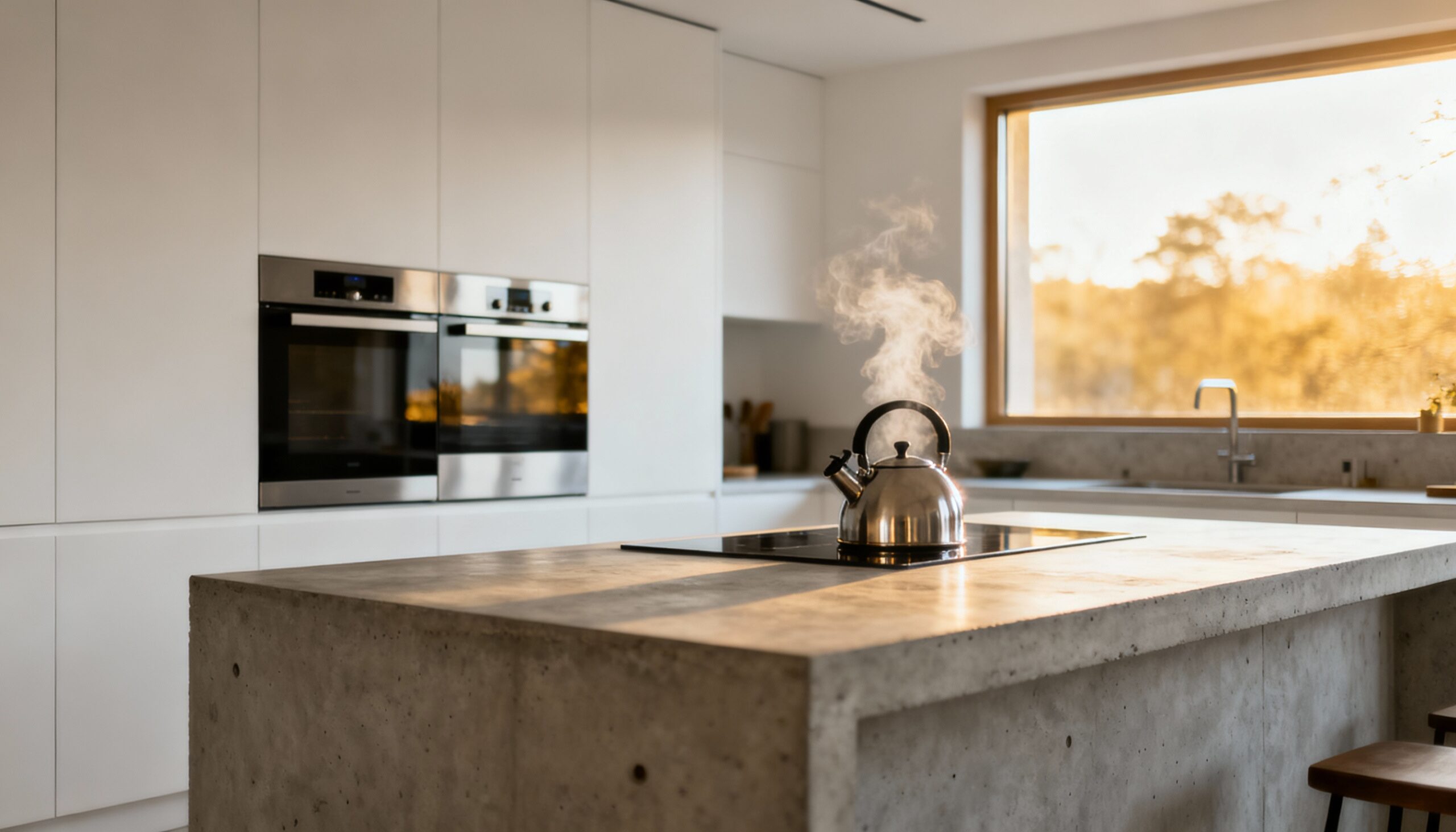
One of the most often encountered problems kitchen designers have are selecting counters that strike the ideal equilibrium between great looks and sustained usefulness. Homemakers are sometimes drawn to beautiful materials like marble, natural quartzite, or light-toned quartz since they instantly bring luxury and improve the kitchen's look.
While these same materials can be subject to everyday wear and tear, marble stains and etches easily, quartz can change colour near intense heat, and porous stones might require periodic sealing. This tension between beauty and functionality pushes designers to consider not only how a counter will look on day one but also how it will operate after years of chopping, cooking, pouring, and entertaining. Many designers advocate assigning different materials to several places depending on their intent so as to strike this compromise.
@ampquartzcabinets AmpQuartz nak bagi 8 aksesori ni FREE je untuk korang! Cepat DM sekarang 🥳 #AmpQuartz #KitchenCabinet freegift #kitchenaccessories #fyp
♬ 퇴근송 – Mozzi Melody
Hardy solutions like engineered quartz, solid surfaces, or sintered stone are best suited in high-traffic preparation areas where toughness is most important. More delicate or dramatic stones might be reserved for breakfast bars, island waterfalls, or showplace sites with less daily risk exposure. Designers pay also a lot of attention to edge profiles, finishes, and protective treatments to guarantee the counter remains durable but looks good.
Matte or honed surfaces hide small blemishes, but rounded corners reduce chipping. Negotiating the conflict of beauty against usability calls for honest conversation about cooking practices, maintenance commitment, and lifestyle. A good compromise ensures that homeowners possess a kitchen that assists actual living without continuing upkeep or concern in addition to having great appearance.
Kitchen Designer Dilemma 3: Large Islands vs Easy Traffic Flow
Negotiating aesthetics versus usefulness, one of the most frequent problems kitchen designers run into is striking a balance between big kitchen islands and clear traffic. The kitchen's visual appeal is immediately raised by a large island, which becomes a daring statement piece with a touch of luxury and roominess.
It offers lots of countertop space for casual dining as well as baking, party, and even cooking. For many homeowners, this is a dream design component that represents a sophisticated, contemporary kitchen. An oversized island, however, may easily impede the normal movement pattern, hence making culinary, cleaning, and even basic chores seem congested. Daily chores become difficult particularly in smaller kitchens where space is limited when the island is either too broad or positioned too near to essential appliances.
Designers have to analyse how people go across the kitchen from the refrigerator to the sink to the oven in order to avoid forming bottlenecks. Often, the discussion revolves around striking a balance between usefulness and influence. This could involve picking a narrower island, shortening it, or even choosing a peninsula providing equivalent advantages without impeding movement. Comfortable movement, especially when many people are cooking or going through, depends on a minimum of 1 to 1.2 metres of clearance around the island.
The perfect solution eventually combines flair with practicality: a lovely island scaled to complement the design of the kitchen, not dominate it. Designers can produce a room that appears beautiful but functions easily in everyday life by giving flow top priority while also appreciating contemporary style.
Kitchen Designer Dilemma 4: Trendy Finishes vs Long-Term Appeal
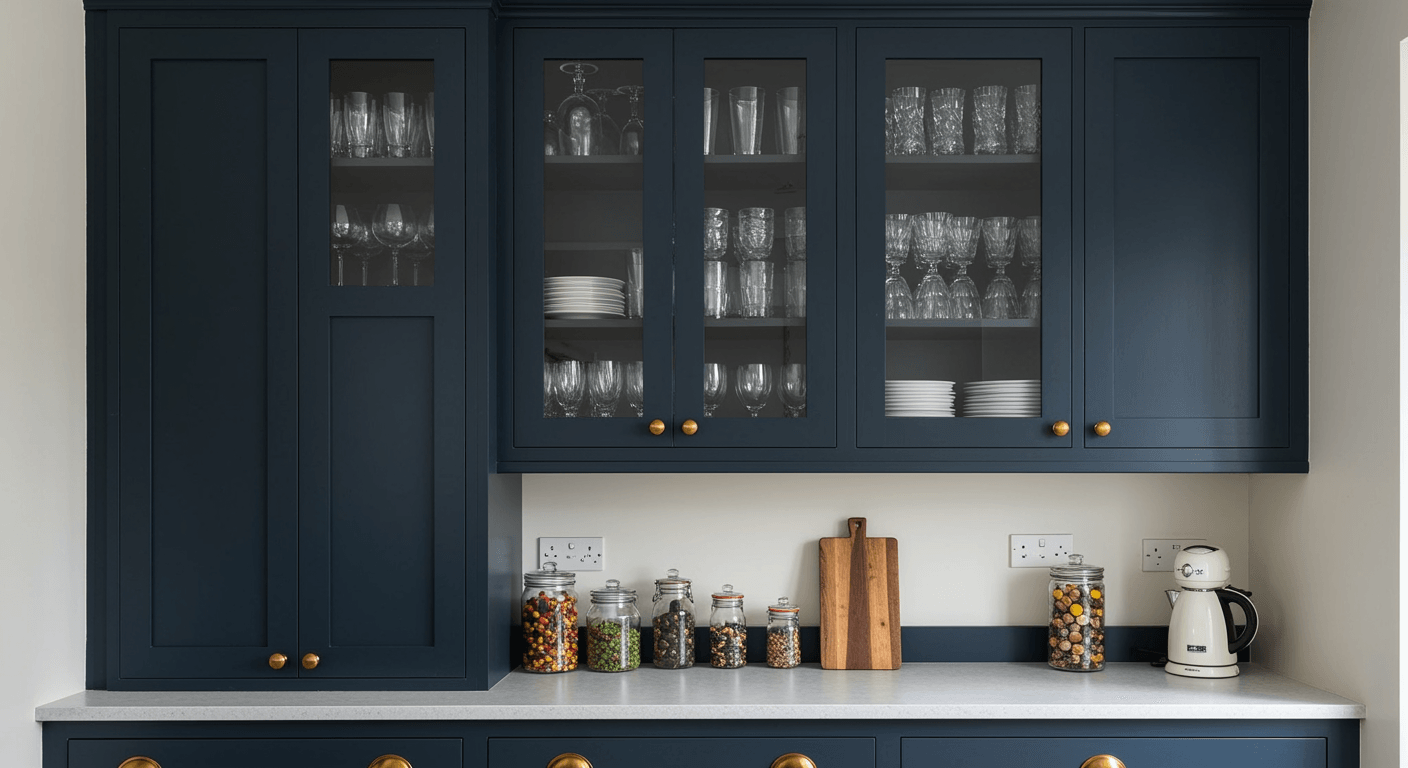
Choosing how to combine contemporary finishes with long-term appeal is among the most often encountered kitchen design problems particularly when homeowners wish a kitchen seeming fashionable now but yet relevant years from then.
Trends like matte black fixtures, bold colour palettes, fluted cabinetry, and highly minimalist handle-less cabinets draw notice and instantly modernise a space. These same choices, though, can grow quickly, show wear more visibly, or demand more care than regular finishes. Matte surfaces are visually attractive, but they frequently reveal grease and fingerprints; brilliant cabinet hues can appear overbearing or limited as preferences change. Knowing the homeowner's lifestyle, upkeep expectations, and how long the kitchen is to be kept before the following renovation enables designers to negotiate this conflict.
@ampquartzcabinets Nak buat untuk full house cabinet macsmni boleh PM kami sekarang! 🤩🥳 #AmpQuartz #FullHousePackage #IskandarPuteri #CabinetMaker #fyp
♬ original sound – dj auxlord
One successful strategy is to keep basic elements like cabinets, countertops, and flooring classic and neutral while using trend-driven finishes on items that may be readily updated, such as backsplashes, bar stools, open-shelf decor, lighting, or hardware. This approach provides flexibility without compromising realism. Another approach to close the gap is selecting gentle wood grains, warm-toned metals, or small patterns that provide character without taking centre stage.
Ultimately, discovering the perfect equilibrium calls first focus on longevity and simplicity of use while also creating a kitchen that reflects the homeowner's individual taste. Designers who can deftly blend both elements ensure the kitchen remains very practical and gorgeous for years to come.
Kitchen Designer Dilemma 5: Open-Concept Aesthetics vs Cooking Realities
Because of their airy, open feel and easy link to the living and dining spaces, open-concept kitchens have grown to be very popular among designers and homeowners. But they also offer one of the most frequent kitchen design challenges: how to combine the clean, modern look of an open plan with the real-life demands of daily cooking.
Although the open plan shows off elegant islands, beautiful cabinetry, and cohesive materials, it also exposes noise, mess, and clutter to the other of the residence. Strong food scents may move freely, and activities like stir-frying or extensive meal preparation may overpower the shared area if not carefully arranged. Designers have to mix smart planning with practical solutions to bargain appearances versus usability.
Controlling smoke and odours without upsetting the open atmosphere becomes critical with a good range hood that is strong and quiet. From the perspective of the living room, strategic zoning such as positioning the prep and cook areas somewhat inward while keeping the island or bar region tidy-facing helps to preserve the aesthetic. For certain homeowners, flexible partitions like glass sliding doors or half-walls provide intermittent separation when heavy cooking is done while preserving openness.
Sufficient hidden storage guarantees that wandering instruments, spices, and devices don't visually clog the linked rooms. Designing an open-concept kitchen that gives the appearance people adore without compromising daily usefulness finally comes down to this: letting the house feel roomy, social, and practical all at once.

